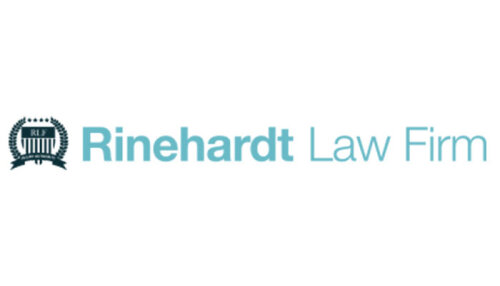Best Drugs & Medical Devices Lawyers in Ontario
Share your needs with us, get contacted by law firms.
Free. Takes 2 min.
List of the best lawyers in Ontario, United States
1. About Drugs & Medical Devices Law in Ontario, United States
Note: Ontario is a province in Canada, and this section explains the Canadian framework. If you meant Ontario, California or another U.S. jurisdiction, the laws differ materially and you should consult a local attorney in that state. This guide discusses federal and Ontario provincial regulation relevant to drugs and medical devices.
Drugs and medical devices in Ontario involve both federal and provincial regulatory layers. At the federal level, Health Canada administers the Food and Drugs Act and the Medical Devices Regulations to authorize products, oversee safety, and require labeling and post-market surveillance. This framework applies to drugs, biologics, and most medical devices sold in Canada, including Ontario residents and businesses.
Ontario also regulates how drugs and devices are dispensed, sold, and monitored within the province. The Drug and Pharmacies Regulation Act governs pharmacy practice, licensing of pharmacists, and drug distribution within Ontario, while the Regulated Health Professions Act and related provincial regulations shape professional conduct for clinicians and pharmacists. These layers interact with federal rules to determine compliance, enforcement, and remedial options. Health Canada - Medical devices • Health Canada - Food and Drugs Act • Ontario Drug and Pharmacies Regulation Act (DPRA)
In Ontario, professionals like pharmacists operate under statutory and regulatory duties enforced by the Ontario College of Pharmacists and other professional bodies. This combination creates a blend of administrative processes and potential legal actions for patients, providers, and manufacturers. For up-to-date provincial statutes, consult Ontario e-Laws and the regulator sites listed in the Resources section of this guide.
Key point: Federal regulation governs product approval and post-market safety, while provincial rules govern practice, licensing, and dispensing within Ontario.
In practice, residents seeking legal guidance should understand the roles of a solicitor or attorney in Ontario. Ontario uses the term solicitor within the broader framework of licensed lawyers, with common practice referring to lawyers or barristers and solicitors depending on context. A specialized Drugs & Medical Devices solicitor or trial lawyer can navigate both regulatory investigations and potential civil claims.
2. Why You May Need a Lawyer
Understanding when to engage a lawyer can help you manage risk and protect your rights in Ontario. Below are concrete, real-world scenarios where legal counsel is often essential.
- Regulatory investigations of a pharmacy or device company. A pharmacy is assessed by Health Canada or the Ontario College of Pharmacists for dispensing practices or labeling concerns. A lawyer helps with inspections, interim orders, and communication with regulators.
- Adverse drug reaction reporting and potential liability. A patient or caregiver seeks to escalate a safety concern and faces regulatory or civil action questions. An attorney can advise on notice requirements and remedies.
- Medical device licensing and post-market obligations for manufacturers. A device company must obtain authorizations or respond to recalls, safety notices, or conformity assessments under the Medical Devices Regulations. Legal counsel guides the regulatory strategy and enforcement risk.
- Professional discipline or license challenges for clinicians. A physician, pharmacist, or nurse faces a suspension, restriction, or investigation. A solicitor can coordinate with regulators, prepare defenses, and manage settlement options.
- Pharmacy business compliance and corporate risk. A pharmacy must ensure compliance with DPRA, privacy, and labeling standards when expanding services or online dispensing. A lawyer helps with risk audits and licensing matters.
- Product liability or consumer claims involving drugs or devices. A consumer or patient seeks compensation for a defective product. Legal counsel can advise on regulatory routes and civil claims in Ontario courts.
3. Local Laws Overview
Below are two to three Ontario-relevant statutes and regulations, along with general notes on their effective status. These names reflect the jurisdictional framework you will encounter in Ontario.
- Food and Drugs Act (Canada) and Medical Devices Regulations (Canada) - Federal statutes that govern safety, efficacy, labeling, and post-market surveillance for drugs and medical devices sold in Canada. The Medical Devices Regulations were enacted under the Food and Drugs Act and have been in force since 1998, with ongoing amendments to modernize regulatory oversight. Health Canada - Medical devices • Health Canada - Food and Drugs Act
- Drug and Pharmacies Regulation Act, R.S.O. 1990, c. D.2 - Ontario provincial statute governing the practice of pharmacy, licensing of pharmacists, and the distribution of drugs within the province. This Act forms the foundation for how drugs are dispensed and regulated at the point of care in Ontario. Ontario e-Laws - DPRA
- Regulated Health Professions Act, 1991 - Ontario framework for professional regulation across health disciplines, including pharmacists and prescribing clinicians. This act structures regulatory oversight, protected titles, and discipline processes across Ontario’s health professions. Ontario e-Laws - RHPA
Recent changes at the federal level emphasize stronger post-market surveillance for medical devices and clearer labeling requirements for drugs, while Ontario continues to refine pharmacy practice standards and professional regulation through its regulatory bodies. For ongoing updates, see Health Canada advisories and Ontario’s e-Laws updates linked above.
For jurisdiction-specific procedures, consult the Ontario regulator pages and laws, and consider working with a Drugs & Medical Devices solicitor to interpret how these statutes apply to your situation.
4. Frequently Asked Questions
What is the role of Health Canada in drug and device regulation?
How do federal and provincial rules interact in Ontario?
What is the Drug and Pharmacies Regulation Act?
Do I need a lawyer if I receive a regulatory notice in Ontario?
How long does a regulatory investigation typically take in Ontario?
What is a Medical Device Establishment Licence (MDEL)?
Can a patient report adverse drug events in Ontario and pursue remedies?
Should I hire a solicitor or a general practitioner for regulatory matters?
Do I need to prepare a formal respond to a regulator in Ontario?
What is the difference between recalls, safety alerts, and recalls for devices?
Is there an appeal process for licensing decisions in Ontario?
Where can I find official Ontario laws and regulations related to drugs and devices?
5. Additional Resources
- - Federal regulator overseeing licensing, post-market surveillance, and safety notices for medical devices sold in Canada. Health Canada - Medical devices
- - Ontario statute governing drug dispensing, pharmacy supervision, and related practices within the province. Ontario e-Laws - DPRA
- - Regulator overseeing pharmacy practice in Ontario, including standards, complaints handling, and professional conduct. Ontario College of Pharmacists
6. Next Steps
- Clarify your issue and jurisdiction - Write down the exact products, devices or practices involved and confirm you are dealing with Ontario, Canada regulatory framework. This helps identify the right expert. (1-3 days)
- Gather documents - Collect notices, recall letters, labeling or packaging, prescriptions, and any regulator correspondence. Organize into a folder for your attorney. (1-2 weeks)
- Do initial online research on regulatory matters - Review Health Canada and Ontario regulator pages to understand your basic obligations and timelines. (1 week)
- Identify a Drugs & Medical Devices lawyer - Look for a solicitor or lawyer with Ontario regulatory experience in drugs and devices, and schedule a paid consult. (1-3 weeks)
- Prepare for an initial consultation - Bring your documents, questions, and a clear objective. Ask about scope, strategy, costs, and potential timelines. (1-2 weeks)
- Develop a regulatory strategy with your attorney - Decide on immediate steps, potential interim measures, and long-term compliance plans. (2-4 weeks)
- Act promptly on deadlines and responses - Regulatory responses have strict timelines; your lawyer should manage deadlines and communications. (Ongoing)
Lawzana helps you find the best lawyers and law firms in Ontario through a curated and pre-screened list of qualified legal professionals. Our platform offers rankings and detailed profiles of attorneys and law firms, allowing you to compare based on practice areas, including Drugs & Medical Devices, experience, and client feedback.
Each profile includes a description of the firm's areas of practice, client reviews, team members and partners, year of establishment, spoken languages, office locations, contact information, social media presence, and any published articles or resources. Most firms on our platform speak English and are experienced in both local and international legal matters.
Get a quote from top-rated law firms in Ontario, United States — quickly, securely, and without unnecessary hassle.
Disclaimer:
The information provided on this page is for general informational purposes only and does not constitute legal advice. While we strive to ensure the accuracy and relevance of the content, legal information may change over time, and interpretations of the law can vary. You should always consult with a qualified legal professional for advice specific to your situation.
We disclaim all liability for actions taken or not taken based on the content of this page. If you believe any information is incorrect or outdated, please contact us, and we will review and update it where appropriate.










